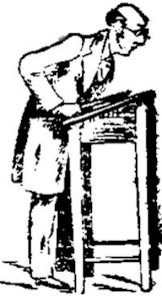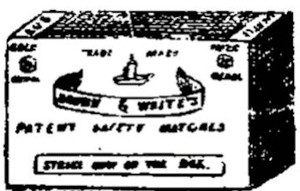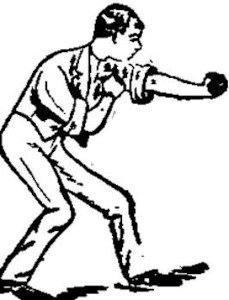This article has been transcribed from a copy of the Cardiff Times in the online collection of scanned Welsh newspapers 1804-1919 in the National Library of Wales, with grateful recognition of the free access accorded to all readers. Paragraph breaks have been introduced for easier reading.
Explanatory Notes
'This is the age of strikes': the principal strikes of the time were the London matchgirls strike of 1888 (which is of great significance in the history of union organisation), the London dock strike of 1889, Welsh miner's strike of 1889, and the Southampton Dock Strike of 1890, while strikes in the USA among cotton-pickers, coalminers and railwaymen were also covered in the UK press.
This article recites well worn clichés, and shows very little understanding of the causes of industrial disputes, assuming in skilled workers a complete ignorance of their economic situation, and a sheep-like willingness to follow a leader. The writer’s opinion that much of the ill-feeling between workers and employers was caused by strikes, and not vice versa, is frequently met in the period, as is the assertion that strikes were caused by paid agitators.
As much intellect has been expended on the facetious captions to the illustrations as to the argument of the piece. —— David Skilton

his is an age of strikes, and the wonder to me is that the masters have not followed the example of the men and struck too. The following are some of the phases of strikes which have struck me of late. At the present day there seems to be
Striking, striking, everywhere
Yet lots of work to do.
Which is left undone by the men best able to do it, for the mere reason that they fancy it is better to starve as strikers than live comfortably on reasonable wages. I should be the last one in [the] world to suggest that workmen should not look after their just rights, but I think that the modern mania for striking is doing more harm than good, for it is driving the trade out of the country, and embittering the feelings existing between employers and their servants The only men who benefit at every turn and corner when the strike fiend is abroad are the paid agitators, who by means of inflammatory speeches stir up discontent among men who, not unfrequently, prior to the appearance of the insidious agitator, were satisfied and content with their lot. But when the agitating orator comes on the scene he puts things in quite a different light. He tells them that they are trampled on and are working too long hours and receiving too little pay, that they are enriching their bloated employers at the expense of themselves and their wives and children.

Honest striker.
He tells them that labour is of more value in the world of commerce than capital, and that as it is the motive power producing the money that the masters put by or squander year after year, it is high time it stood up for its rights and demanded that more of the money it enables its employer to amass should come in its direction. All this is carefully gilded on the pill principle with a coating of capital and labour in its most attractive form, so as to show the masters as tyrants and the workmen as slaves. The result is that little by little the mind of the workman is poisoned by the principles preached by the agitator, and he comes to look upon his employer as unjust, and himself and his fellows ill-used.
Once this is the case the rest is easy. Someone begins to complain of the hours or the rate of wages, and a deputation is sent to see the masters with an idea of resolving the new-found grievance.
For reasons best known to himself the master may not be able to see his way to make the advance at the time, or perhaps not at all, and he points out to the men that they are fairly paid for the work they do.
But the seeds of mistrust have taken root, and the men are bound to be guided by the agitator who, on hearing the report of the deputation says 'strike.'
They do as they are told, and follow their leader much in the same blind manner that sheep do.

Educational striker.
In many cases a percentage of the workmen have no idea what they have struck for, and would be glad to return to their places at the old wages. All they know is that they have been told to strike, and not being blessed with too much thinking power, they proceed to play the game of follow-the-leader in the vain hope that they will be rewarded by increased pay and shorter hours. And what are the results? In many cases the cause is won, after a long and tedious fight, but won at a terrible cost.
Many a mother could tell sad tales of strikes and their consequences. Could tell how she and her little ones had to exist or starve on the beggarly allowance meted out to the waiting and hoping workmen, who, led on to strike by the paid and relentless agitators, are utterly powerless to return to their labours and provide their wives and children with the means of subsistence.
Once on strike the most reluctant striker has to remain out until his leaders tell him he may return to work.
So far is this principle carried out that men are stationed at all points near the works at which strikes occur, to see that none of their fellows betray 'the cause,' and strive to get into the work, again at the old wages and hours.
With wealthy firms who feel that they are paying fair wages to their workmen, and who decline to be bullied by either Unions or their representatives, the struggle is usually long and terrible, for strike pay is totally inadequate to provide for the necessities of those receiving it, and is usually no equivalent for the wages paid to the men when in their situations.

Matchless striker.
It is indeed a curious remedy for the disease. Yet the workmen of to-day seem to have no idea of striving to eradicate such remedies, and week after week they come out on strike at the bidding of the paid agitators of the Unions. Not only do these people bring men out on strike, but they prevent others who are perfectly willing to work for reasonable wages from doing so.

Harmless striker.
If the working man would look the question in the face he would, I fancy, find that, whatever good the Unions and their emissaries may be doing him, they are also doing them harm by repeated strikes, for they lessen the public sympathy by the pig-headed way in which they preach the principle of the whole loaf or nothing. They stagnate trade, and in many cases they have shut up a thriving business and sent it bag and baggage to another country, with the result that hundreds, if not thousands, of poor men and women have been thrown out of employment.
Striking in reason and with just cause may help to remedy labour evils, but striking with no intention to give in until the end, fair or unfair, be gained cannot but bring want and misery in its train, and damage to no small extent th6 future of the British workman.
Links to Related Material
Last modified 16 May 2022